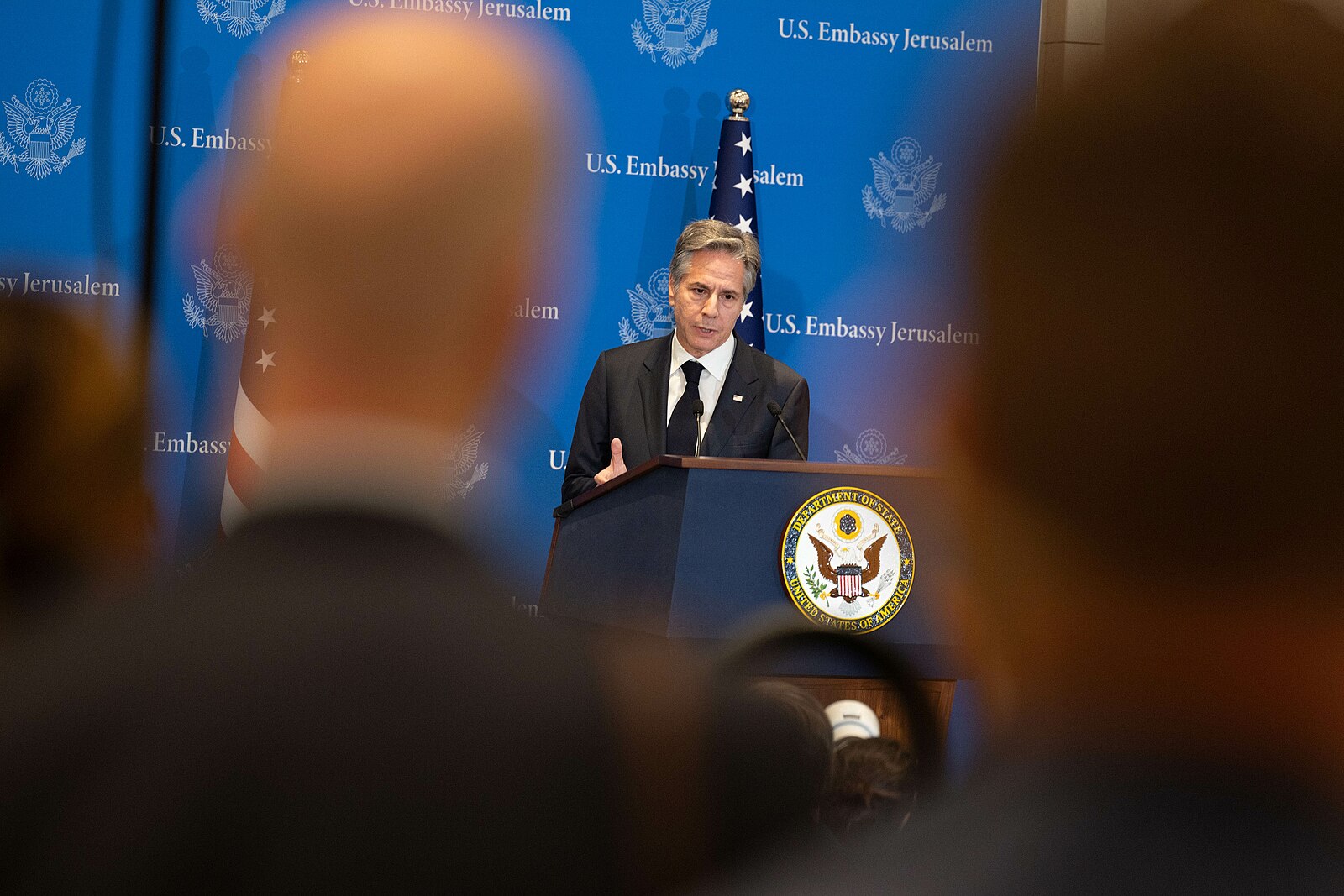Blinken was previously in the Gulf country on June 7, when talks were centered on a proposal presented by U.S. President Joe Biden on May 31.
U.S. Secretary of State Antony Blinken is reportedly travelling to Qatar, Egypt and Israel starting from Tuesday evening amid heightened regional tensions, as Washington scrambles to reach a ceasefire and a captives release deal between Israel and Hamas.
Axios reporter Barak Ravid first reported on Blinken’s upcoming visit on Tuesday, citing anonymous sources privy to the matter.
“Blinken plans to visit Qatar, Egypt and Israel to discuss talks on the hostage deal. However, his visit still depends on whether Iran will attack Israel. If the attack occurs on Tuesday, the visit may be postponed,” Ravid explained.
The top U.S. official’s visit to Doha would be his fifth since the beginning of the Israeli war in the Gaza Strip on October 7, where Israel has killed at least 39,897 people.
Blinken was previously in the Gulf country on June 7, when talks were centered on a proposal presented by U.S. President Joe Biden on May 31, which also received a majority vote at the United Nations Security Council.
Speaking to the press in Doha, Blinken claimed that Hamas had presented “additional amendments” to its ceasefire proposal.
Hamas denied Washington’s claims and stressed that it “has dealt positively” with all stages of the negotiations while Israeli Prime Minister Benjamin Netanyahu blocked all efforts to end the war.
Indirect negotiations between Israel and Hamas are due to resume on Thursday following a joint statement issued by the leaders of mediating countries Qatar, Egypt and the U.S. on August 8 that urged both sides to reach a deal.
The statement received global support including from the United Kingdom, France, Germany, Türkiye, Jordan, Sweden, Kuwait among others.
“It is time to bring immediate relief both to the long-suffering people of Gaza as well as the long-suffering hostages and their families. The time has come to conclude the ceasefire and hostages and detainees release deal,” the statement stressed.
White House National Security Communications Advisor John Kirby told the press in Washington on Monday that all sides are “fully” expected to be at the talks.
“All negotiators should return to the table and bring this deal to a close. It’s time to do that. The details are of such a nature that we think they can be hashed out,” Kirby said.
“They say they care about the people of Gaza; they say they care about the Palestinian people. One way to prove that is to sign up to this deal, show up, close it, and let’s get it done,” he added.
The talks would focus on Biden’s proposal of May 31, which would pave the way for a complete ceasefire in the Gaza Strip and the withdrawal of Israeli forces.
According to Axios, Biden’s top Middle East adviser, Brett McGurk, is expected to travel to Cairo this week for talks with Egyptian and Israeli officials to finalise security arrangements on the Egypt-Gaza border and Philadelphi corridor.
Israel had invaded and destroyed the vital Rafah Crossing on May 6, preventing the entry of lifesaving humanitarian assistance and medical evacuations.
Qatar, the host of the Hamas political bureau, has been at the forefront of mediation efforts throughout the war alongside Egypt, which shares ties with Israel.
Late last year, mediation efforts led to a truce that resulted in the release of 109 Israeli captives out of 251 held by Hamas and 240 Palestinians from Israeli prisons, some of whom have since been re-arrested by Israeli forces.
Indirect talks between Israel and Hamas have stalled since the expiration of the truce, with Israeli occupation forces intensifying the brutal onslaught while rejecting demands for a complete ceasefire.
The upcoming round of negotiations is taking place under a tense climate following Israel’s assassination of Hamas political chief Ismail Haniyeh in Tehran on July 31 and Hezbollah commander Fouad Shukur in Beirut on July 30.
While Israel claimed the attack in Beirut, it has yet to claim responsibility for the killing of Haniyeh despite global condemnations, including from mediators Qatar and Egypt.
Iran and Hezbollah have since vowed to retaliate against Israel, raising fear over further escalation within the region.







